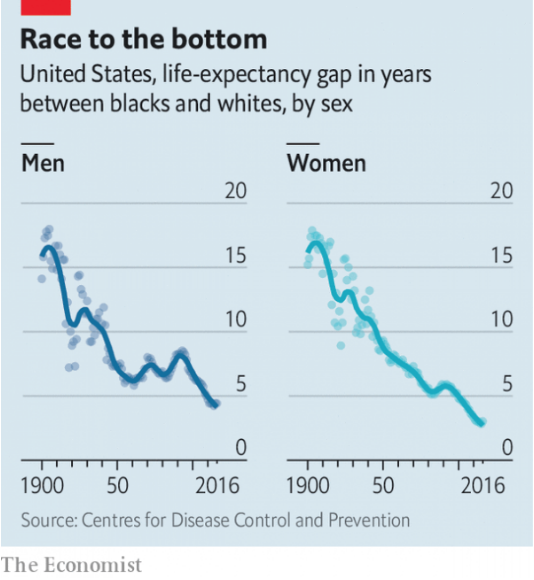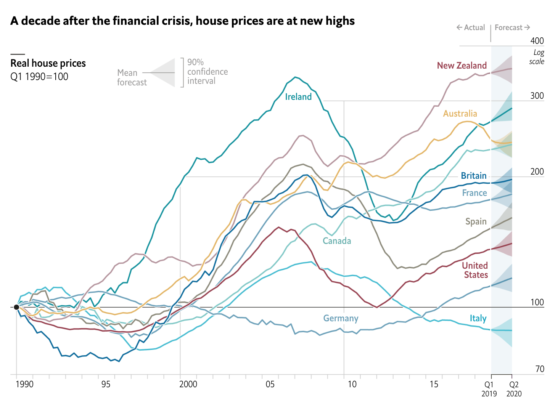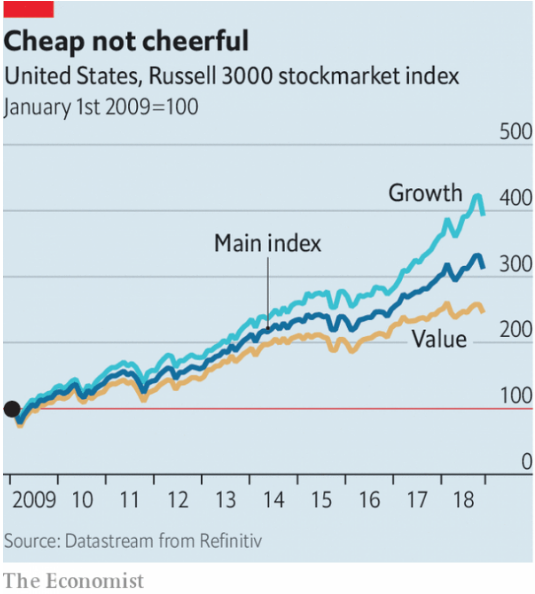I recently expressed some doubts about the idea of “progress”. David Rose has a short essay that provides one example of how society is regressing:
Not long ago, it was possible for people with dramatically different views to talk to each other about what they believed and why they believed it. They were not afraid to speak their minds. And even when debate did not lead to agreement, the very act of discussion led them to connect to that person, to view him or her as an individual and not an objectified silhouette from the tribe of “them.”
Anyone over the age of 55 cannot imagine any leftist hippie in the 1960s or ’70s tolerating any censoring of another person’s speech. But today an increasing number of young people intimidate each other into silence so often that it is becoming a habit. Without realizing it, students are increasingly self-censoring to avoid being shunned. This is making them paranoid and miserable. Worst of all, they are getting used to it. That is a very dangerous thing for a free society. To say it is Orwellian is an understatement because it is occurring at a cultural level.
For decades I sat at the lunch table at Bentley College, free to say whatever I wanted. I feel bad for younger academics that no longer have that freedom.
People often claim that China wants to impose its (illiberal) system on the rest of the world. But what sort of system do the Chinese actually prefer in other countries? Here’s The Economist:
Russian rent-seekers and their short-term interests play a central role in the Sino-Russian relationship. “Sometimes it seems that Russia’s policy towards China is shaped by the lobbying interests of the Kremlin’s heavyweights,” says Andrei Kortunov, head of the Russian International Affairs Council, a think-tank. The same is not true in reverse. Private Chinese firms are reluctant to invest in Russia. Some fear American sanctions; others worry about the lack of property rights and clear rules. To operate in Russia, you need what Chinese businessmen now call bao hu san—a protective umbrella provided by siloviki. For such a small market, why bother? There is an irony here. Russia’s regime has opted for the East; but Chinese people and investors are interested in Russia only to the extent that it is Western. Investors want rule of law, not cronyism. Tourists want St Petersburg, not Tuva.
From the same issue, we learn that America is not just a big bully, it’s also a hypocrite:
America, however, did not join the CRS. Instead it shares information on the foreign clients of American banks under FATCA’s reciprocal provisions. But sharing is patchy; a lot of countries get nothing. Combine that with the high level of anonymity offered by American shell companies, and it is hardly surprising that America has become the destination of choice for many tax evaders. One tax expert reckons that “over 90% of assets avoiding the CRS have been herded into the USA”.
America does not have to worry about the sort of bludgeoning that it doled out to Switzerland—no other country has anything like the same extra-territorial financial power.
Also from the same issue, evidence that something mysterious happened in the mid-2010s. The entire world, including the US, China, India, Europe and many other places, suddenly became more bigoted against Muslims. Why?
NAHEED NENSHI, Calgary’s ebullient mayor, says that when he was elected in 2010—becoming the first Muslim to lead a large North American city—only the foreign media brought up his religion. The local press never mentioned it. That changed when he ran for re-election for a third term in 2017. People “suddenly started talking about race and religion”, sometimes abusively, online. Although his rivals avoided bigotry, it encouraged formerly non-voting racists to turn up at the polls. He still won. Four years ago, when Justin Trudeau was elected, “Canada was bucking the trend,” says Mr Nenshi. Now it is learning that “we’re not immune at all” to the political maladies of the age.
In the early 1920s, Herbert Hoover led a relief effort in China Russia that assisted millions of starving peasants. One of the great evils of nationalism is the denial of historical truth:
In the Volga region, where residents were driven by hunger to boil and eat human flesh, the ARA organised kitchens and transport, distributed food and rebuilt hospitals. . . . “The help given by the Americans can never be forgotten, and the story of their glorious exploit will be told by grandfathers to their grandchildren,” grateful Russians told them.
Yet the duplicity and paranoia of the Soviet government haunted the ARA’s operation to the very end. While publicly Bolshevik leaders showered the Americans with praise and thanks, the secret police instructed local officials: “Under no circumstances are there to be any large displays or expressions of gratitude made in the name of the people.” No sooner was the Russian job done than the authorities began to expunge all memory of America’s help.
The edition of the Great Soviet Encyclopedia of 1950 described the ARA as a front “for spying and wrecking activities and for supporting counter-revolutionary elements”. Modern Russian textbooks barely mention the episode.
I also doubt that American textbooks mention the episode.
Some people claim that the Chinese people like the draconian security measures being imposed, as they reduce crime. It’s not that simple, as this story from Xinjiang demonstrates:
Six local Han Chinese businesspeople working in real estate, agriculture, services and retail estimated that the city population had halved from between 500,000-600,000 to about 200,000-300,000 over the past two years.
In the city centre, rows of shops were shuttered. Farther out, many low-rise houses — usually rented by migrant workers — had been demolished. . . .
Another small business owner said people left Korla because of the inconvenience of the security. “It’s not that living here isn’t ‘stable’,” he said, using the Chinese authorities’ term for their mission in Xinjiang — to “stabilise” the region. “It’s the pressure of daily life. When you go into a shopping centre you have to scan your face, scan your ID, scan your bag, store your bag in a locker. You have to hand over ID just to buy something,” he said.
China had the goal of bring lots of Han people to Xinjiang. Now they are leaving.
Back when I was teaching economics, India students used to tell me that while Modi was an anti-Muslim bigot, at least he was good for business. Actually, nationalists are rarely good for business:
“There is no demand and no private investment,” groused Rahul Bajaj, chairman of Bajaj Auto, a motorcycle-maker, at its annual meeting in late July. “So where will growth come from?” The remark, widely interpreted as a swipe at Mr Modi, encapsulates Indian business’s disenchantment with the man they once regarded as their champion.
The immediate cause of the mood swing was the budget, presented on July 5th by Nirmala Sitharaman, the newly appointed finance minister. Business folk tuned in to the two-hour presentation expecting less red tape, fewer tariffs, more incentives for investment and lower taxes. They got the opposite.
At an international bank, analysts’ feigned interest turned to mild bewilderment, then despair, as Ms Sitharaman recited the budget’s 143 provisions. The top marginal tax rate for high-earners would increase from 35.9%, already above the level in most emerging economies, to 42.7%, roughly as much as the average in the OECD club of mostly rich countries. The corporate-tax rate for big companies stayed at 35% (compared with a global average of 23%, and 21% in America). Or at least it appeared to: a new levy of 20% on share buy-backs, on top of existing charges, would bring the capital-gains rate above 40%, among the highest in the world. Add in a tax on dividends and a recently imposed charge on recipients and, all told, the government could skim off 60% of corporate profits. New tariffs would be slapped on products from cashews to newsprint to fibre-optic cables.
I frequent do “not from The Onion” posts, which for some strange reason have become much more common in recent years. Maybe it’s time to do “not from the People’s Daily” posts.
In 2018, the Department of Homeland Security (DHS) announced its plan to require migrants list their social media accounts on immigration forms. The goal is to monitor and keep record of their social media activity. Although the monitoring isn’t supposed to apply to naturalized citizens, the information collected could influence the success of their applications for citizenship: conversations and comments made on social media may be scrutinized and interpreted to find reasons to deny the application.
The bad news: Every day the US seems to become more like China.
The even worse news: China’s a moving target, as it’s becoming ever more repressive.
The life expectancy gap between blacks and whites is falling rapidly, especially for women:
 Miami is building air conditioned bus stops. No, this is not a joke:
Miami is building air conditioned bus stops. No, this is not a joke:

In America, even many prisons now have air conditioning. (I grew up without it.) Still think that living standards in America are declining?
 A series of random, unpredictable ups and downs.
A series of random, unpredictable ups and downs.






